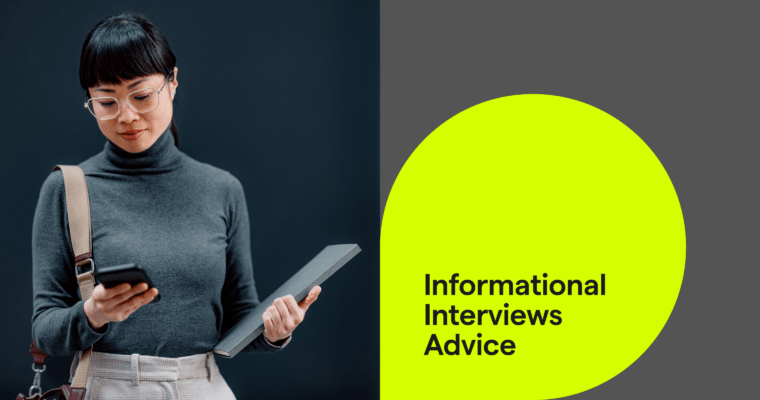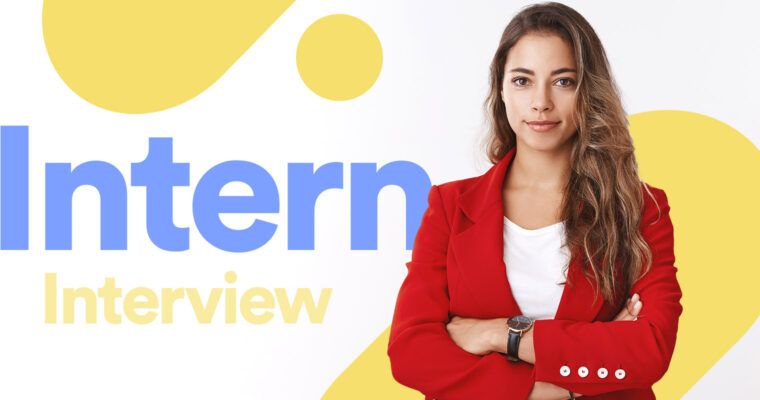
People refer to informal meetings with potential employers in all kinds of ways. There’s the “mock interview,” the “coffee chat,” and even the “networking meeting.” All three fit beneath the umbrella of informational interviews—a rather underappreciated strategy that can be the key to success in finding a new job or career path.
As a recent graduate, seeking out informational interviews is a great way to gain a competitive advantage over your peers. Not only is this strategy important for making connections in the industry you’re targeting, but it’s also great practice for a “real” interview down the road.
For someone looking for a career change, informational interviews are also beneficial because they help you expand your professional network while refreshing your knowledge about current best practices and trends in your industry.
Having a career-focused conversation with someone in a professional field or even at a specific company you’re interested in can bring clarity to your job hunting, pointing you in a more purposeful direction. When done well, these interviews can give you the “inside scoop,” secure new contacts, and even (if you’re lucky!) help land you a job.
Of course, the true purpose of informational interviews isn’t to “learn more about the company”—it’s to impress your connection. Your interviewer ultimately holds the power to help you find a job within their company, or at least to talk about you to their team or other professional contacts if you wow them. (In some cases, they may even hire you on the spot!)
No matter the outcome, it’s critical that you treat any informational interview like a regular interview and take it very seriously. Since your primary goal is to impress the interviewer, you’ll want to come with an updated résumé, polished conversational skills, and your best sales pitch (about yourself, naturally) at the ready.
Here are our top tips on how to ace an informational interview.
Seek out connections
It’s always nice to know someone at a company you’re interested in working for, such as a family friend, fellow alumni, or distant connection. However, if you don’t have a contact established, it’s perfectly acceptable to use other strategies when initially reaching out.
First thing’s first: Find the right contact. It isn’t going to be worth your time to send an email to a general or company-wide inbox, as it will likely fall through the cracks. Instead, on LinkedIn, look up individuals of interest in a particular division or on a specific team at a company you’re considering; try to find their email address.
If you can’t locate their personal email, call the company’s main phone number and ask to be connected to the person directly. Have a thirty-second speech ready that mentions your background, why you’re intrigued by their company, and why you want to speak to them specifically. (Hint: You can also use this prepared message as the basis for your email or leave it on their voicemail!)
Make sure you mention that you realize there may not be any positions available now, but you’d love to talk to them anyway for twenty minutes if they’d be willing. This takes the pressure off of the conversation and steers it into casual territory.
Another great idea is to track down fellow alumni who you may not know but who work for a company that’s on your radar. Search via LinkedIn or through your school’s alumni database. When you contact them, you immediately have something in common, and that alone can lead to securing an interview.
Prepare, prepare, prepare
After you land an informational interview, here’s how to ace it:
- Research the individual and company. Just like a regular interview, you need to do your research (and then do some more) beforehand. Learn as much as possible about the individual and look for any points of connection you can mention to ease into the conversation. Research the company’s mission, values, and culture (often found on a company website’s About Us or Jobs page) and be prepared to speak to why these appeal to you. It’s also wise to locate the company’s latest press release so you can readily discuss what’s evolving at the organization presently. Having extensive knowledge of the company will definitely impress your interviewer.
- Prepare your questions. You’ll want to come prepared with a list of focused questions that highlight your professionalism while netting useful information for attaining employment. Here are several ideas:
- How did you get your start in this field?
- What’s it like working at your company? What does a typical day look like?
- What advice do you have for someone starting out in this industry?
- Who succeeds in this field? What qualities are needed?
- What do you see happening in this field over the next few years?
- Show gratitude. Don’t wait until the end of the interview to express your gratitude. Start off by thanking them earnestly—it will do much more than set the tone. After all, you’re asking someone for their time and knowledge, so it’s important to acknowledge this from the very beginning of the interview.
Being proactive, having a game plan, and expressing gratitude are all essential components of nailing an informational interview. But remember, this is not a job interview! If you imply that you’re actually seeking an open job, you’ll defeat the purpose and the interviewer might feel tricked. Better to let them ask whether you’d be interested in applying for a job, so long as it’s their idea, not yours!
Now get out there and ace that informational interview! You may be pleasantly surprised to find that it gets your foot in the exact door you’re trying to open.
>>Read More: How to Write a Follow-Up Email After an Interview






